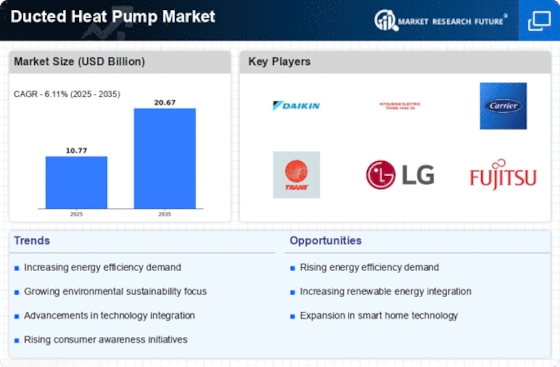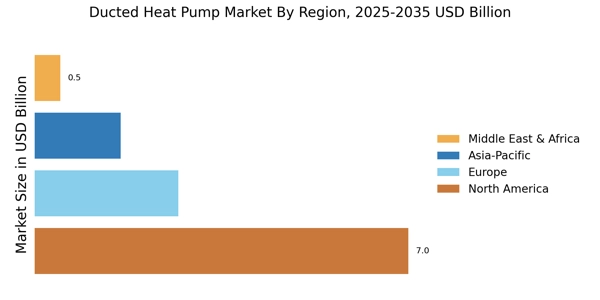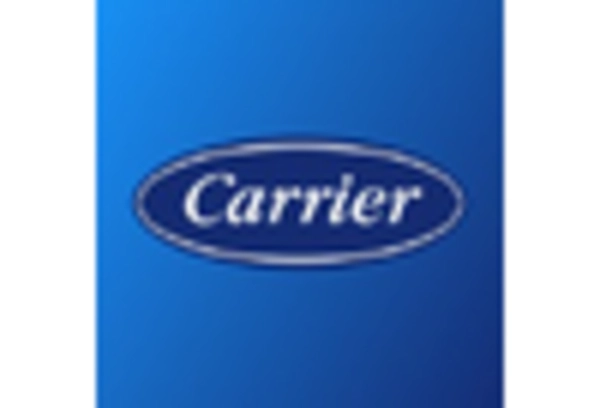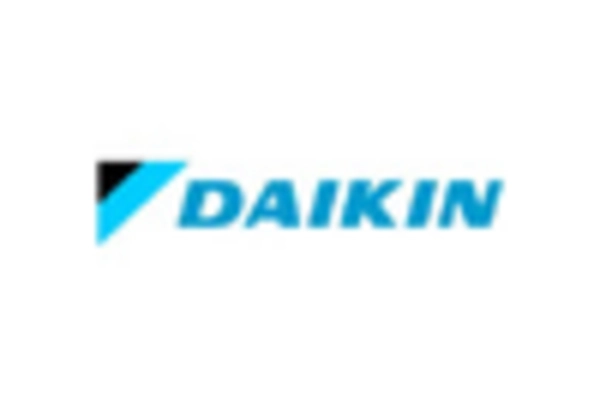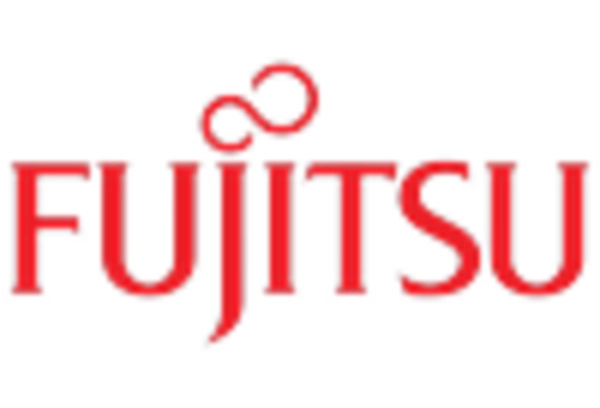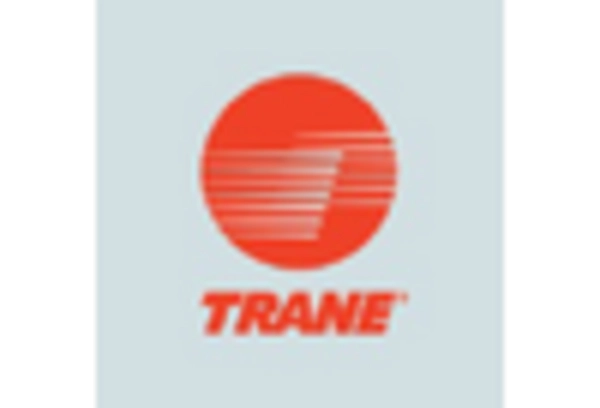Technological Innovations
The Ducted Heat Pump Market is significantly influenced by ongoing technological innovations. Manufacturers are continuously developing advanced features such as smart thermostats, variable speed compressors, and enhanced refrigerants that improve system performance and user experience. These innovations not only increase the efficiency of ducted heat pumps but also enhance their compatibility with smart home systems. As consumers seek more control over their heating and cooling environments, the integration of technology into ducted heat pumps is likely to drive market growth. Recent studies suggest that the incorporation of smart technology can lead to energy savings of up to 20%, making these systems more appealing.
Increased Energy Efficiency
The Ducted Heat Pump Market is experiencing a notable shift towards energy-efficient solutions. As consumers become more conscious of energy consumption, the demand for ducted heat pumps, which offer higher efficiency ratings compared to traditional heating systems, is on the rise. According to recent data, ducted heat pumps can achieve efficiency ratings of up to 300%, significantly reducing energy bills. This trend is further supported by advancements in technology that enhance the performance of these systems. As energy costs continue to fluctuate, the appeal of ducted heat pumps, which provide both heating and cooling, is likely to grow, driving market expansion.
Consumer Awareness and Education
The Ducted Heat Pump Market is benefiting from increased consumer awareness and education regarding the advantages of ducted heat pumps. As information about energy efficiency, cost savings, and environmental benefits becomes more accessible, consumers are more inclined to consider ducted heat pumps as a viable heating and cooling solution. Educational campaigns by industry stakeholders and government bodies are playing a crucial role in informing potential buyers about the long-term benefits of these systems. Market Research Future indicates that informed consumers are more likely to invest in energy-efficient technologies, suggesting that ongoing education efforts will continue to drive growth in the ducted heat pump market.
Rising Demand for Renewable Energy
The Ducted Heat Pump Market is witnessing a surge in demand for renewable energy solutions. As governments and consumers alike prioritize sustainability, ducted heat pumps, which can be powered by renewable energy sources, are becoming increasingly attractive. The integration of solar panels with ducted heat pump systems is a growing trend, allowing homeowners to utilize clean energy for heating and cooling. This shift not only reduces carbon footprints but also aligns with global efforts to transition towards greener energy solutions. Market data indicates that the adoption of renewable energy in heating systems is expected to increase, further propelling the ducted heat pump market.
Government Incentives and Regulations
The Ducted Heat Pump Market is positively impacted by government incentives and regulations aimed at promoting energy-efficient technologies. Many countries have implemented policies that encourage the adoption of ducted heat pumps through tax credits, rebates, and grants. These incentives not only lower the initial investment costs for consumers but also foster a favorable environment for manufacturers. Regulatory frameworks that mandate higher energy efficiency standards for heating systems further bolster the market. As these policies evolve, they are likely to stimulate demand for ducted heat pumps, making them a more viable option for consumers seeking sustainable heating solutions.


